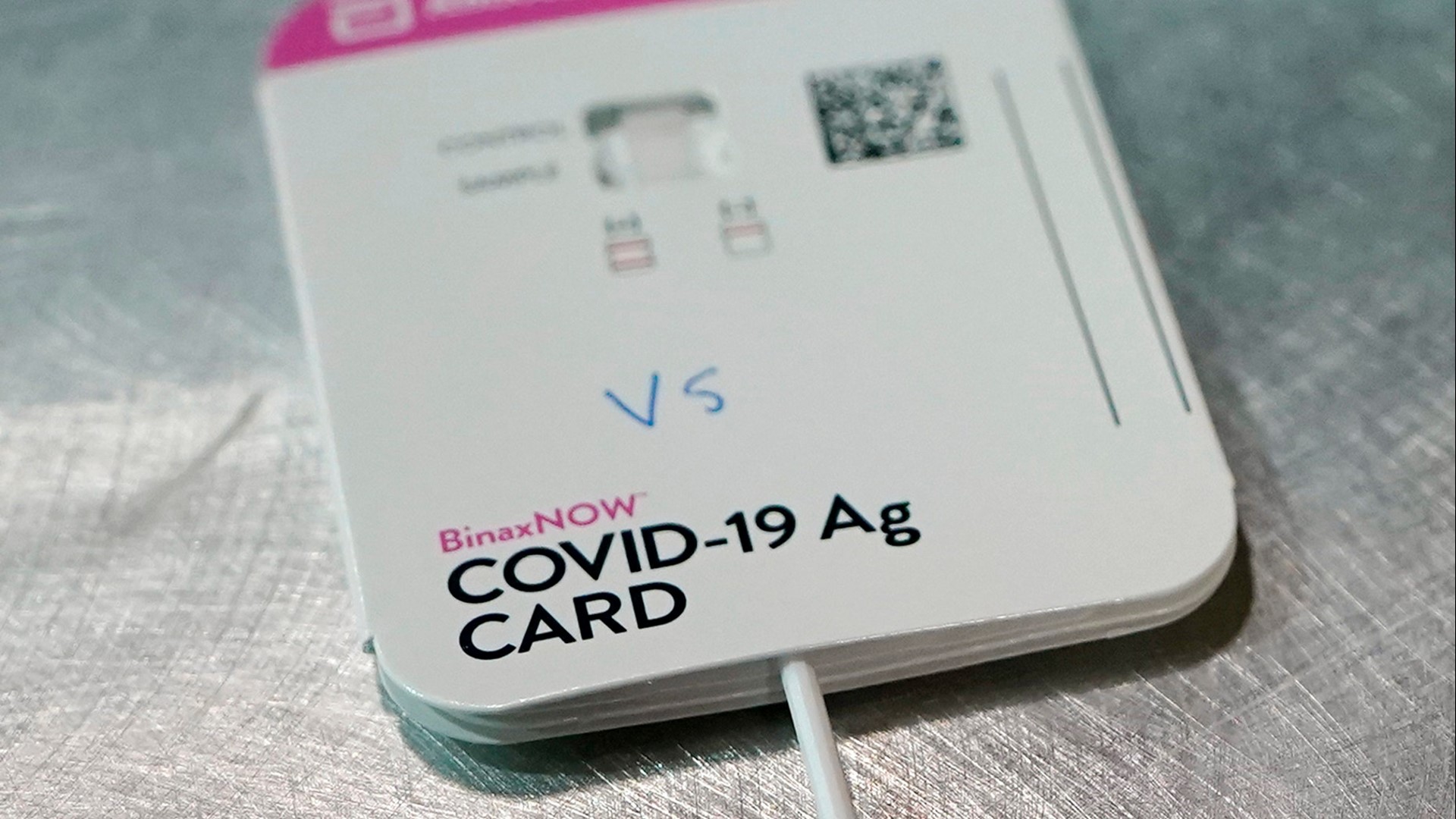HARRISBURG, Pa. — On New Year's Eve, millions of Pennsylvanians will gather to ring in 2022. In order to plan ahead and take precautions against COVID-19, people will be looking for COVID-19 tests.
As cases of the omicron variant spread, the Food and Drug Administration (FDA) and the National Institutes of Health (NIH) warn the at-home tests may not always detect the strain, though say they are still an important tool.
For testing, people have two options: at-home tests, rapid antigen tests, or PCR tests. The Polymerase Chain Reaction, or PCR test, detects genetic material from the virus. This is the most accurate type of test for COVID-19, but takes the longest to produce results.
"The PCR looks for the actual virus. It's much more sensitive, which means it picks up more disease," said Dr. John Goldman, an infectious disease specialist at UPMC.
Rapid at-home tests detect antigens in the virus and promise results within minutes.
"The home tests are not as sensitive as the PCR test, the hospital performed tests," said Dr. Jospeh Kontra of Penn Medicine Lancaster General Health.
Doctors believe at least one-third of at-home tests may deliver false-negatives. If results appear positive, however, health officials said it is very likely you have contracted the virus. They recommended taking two at-home tests for an added sense of security.
"Remember that the antigen tests are sometimes sold in a kit of two and the idea is that if you have symptoms, you should use the first of the kit on day zero and use the second part of the kit if you test negative the first time," said Kontra.
If you have COVID-19 symptoms such as fever, chills, and shortness of breath, but test negative using an at-home test, doctors recommend taking a PCR test to confirm whether you have the virus.

